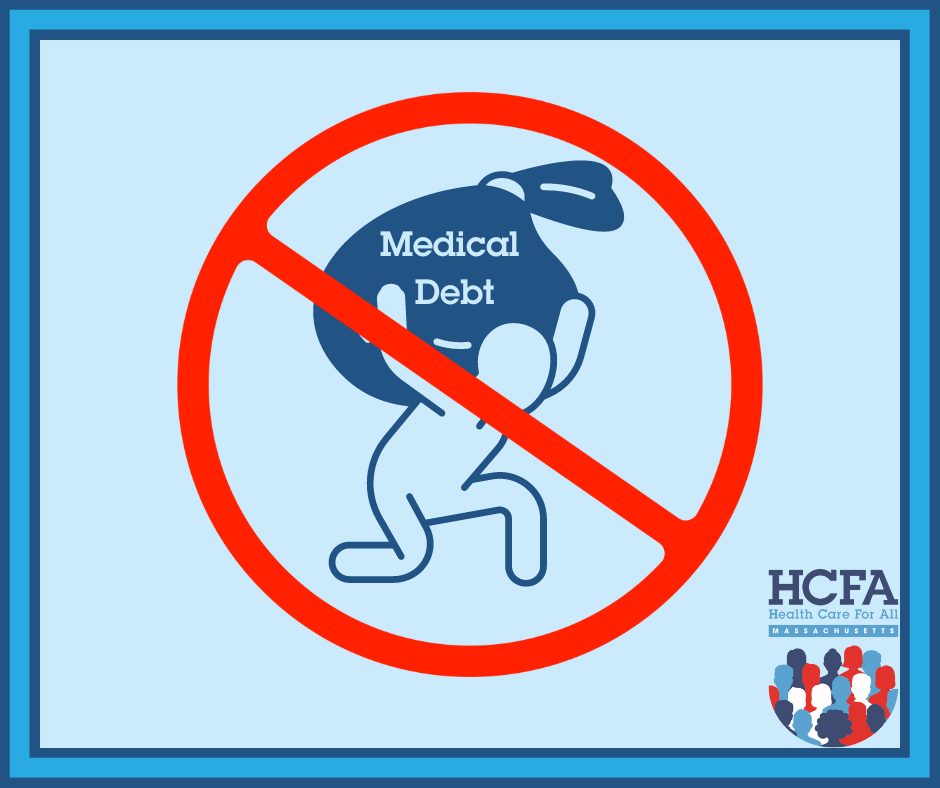Medical Debt in the United States and Massachusetts
Nearly 1 in 3 working age Americans have medical debt, or health care bills that they are paying over time. While insurance coverage plays an important role in protecting people from medical bills, most Americans have had the experience of receiving necessary medical care just to be sent a bill that was much higher than expected. Even in Massachusetts, the state with the lowest uninsured rate in the country, 1 in 8 residents report holding family medical debt and 1 in 7 report trouble paying family medical bills. Both nationally and here in Massachusetts the burden of medical debt is not carried evenly. In the Commonwealth, 20% of residents reporting family medical debt are non-Hispanic black compared to only 12.4% of white families reporting medical debt.
The cost of health care and the fear of acquiring medical debt is a major barrier to accessing care. About 61% of Americans are worried about medical debt when they utilize the health care system and 2 in 5 Massachusetts adults have delayed or skipped care due to the cost. Additionally, we know from state survey data that problems paying medical bills have forced families and individuals in Massachusetts to cut into savings (52.7%) borrow money or acquire credit card debt (37.9%) to pay for medical bills, or file for bankruptcy (1.5%).
New Proposed Federal Rule Would Ease the Burden of Medical Debt
Earlier this summer, the Biden administration took a tremendous step forward to prevent additional financial hardship for individuals and families with medical debt. On June 11th the Consumer Financial Protection Bureau (CFPB) released a proposed rule that would help increase credit scores and loan approvals by removing medical debt from credit reports, increase privacy protections, and stop debt collectors from coercing people to pay through the credit reporting system. If finalized, this new rule would remove medical debt from over 15 million American’s credit scores and result in about 22,000 additional mortgages approved each year.
HCFA applauds the administration’s efforts to address medical debt and the important work the CFPB has done over the years to bring attention to this important issue. One way we can help ensure this proposed rule is finalized is to submit comments. In particular, if you or someone you know has a personal story to share about the impact medical debt on your credit score, we encourage you to submit comments. Public comments are due Monday, August 12 and can be submitted via this link.
Eliminating Medical Debt in Eastern Massachusetts
While removing medical debt from credit reports is a crucial step in preventing additional financial harm for families with medical debt, it doesn’t change the fact that millions of Americans and about 880,000 Massachusetts residents will continue to struggle to pay off their medical bills. Thanks to the generous support of the Atrius Health Equity Foundation, Health Care for All (HCFA) is excited to be partnering with Health Law Advocates and Undue Medical Debt to work toward eliminating medical debt in Eastern Massachusetts. In the coming months, HCFA will be working to develop a state policy agenda to tackle the drivers of medical debt. Stay tuned for more to come about this exciting project!
Marcella Lampon is HCFA’s Policy & Project Coordinator.


